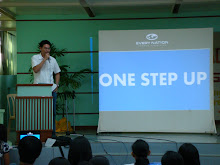The search for the right leader is one of the most crucial crossroads for many companies, corporations, organization and even countries. The right leadership that can inspire, manage, and lead will often usher in a period of success.
The late Peter Drucker was a leading management consultant who wrote several books on management and leadership. He has written 40 books as well as hundreds of articles that are still continuously read and studied to this day. He is recognized as “The father of modern management”. In celebration of his 100th year birthday, a former student and author, William Cohen, wrote a book entitled “Drucker on Leadership”, which compiles many of the latter’s thoughts on leadership.
Peter Drucker believed that leadership was a calling, and that having a moral and ethical center was crucial to being a good leader. He often wrote about character traps that would lead to the demise and failure of leaders, leading to selfishness and abuse of power. William Cohen characterized these traps into the seven deadly sins of leadership, which Drucker sought to emphasize in order to prevent leaders from falling into them. The seven deadly sins of leaders were:
Pride – When a leader believes that rules no longer apply to him, he believes that due to his importance, he can be exempt from normal standards of accountability.
Lust. – Power attracts many things leading to a lot of temptation. A leader’s lack of a moral center often leads to indulgence, which then clouds his ability to render the correct judgment.
Greed. -The sin of greed is a sin of excess. It frequently starts with power. Leaders have power, and power has a tendency to corrupt.
Sloth. –Characterized as an unwillingness to act. It is sometimes seen as a sense of entitlement wherein the leader refuses to do anything he considers to be beneath his position.
Wrath. – The inability to deal with power often leads to anger and wrath as a natural response when things do not happen a leader’s way. The Leader will tend to explode and respond without analyzing properly the situation.
Envy – The belief that every thing should revolve around the leader and when there are things that do not, the natural response is to “attempt to destroy another’s reputation, or in other ways attempt to feel better by lowering the status of another.”
Gluttony - Applies to excessive consumption of any kind. Expects the perks of the position to be a natural reward for it
I believe that in selecting leaders, we have to be recognizant of their natural tendencies to fall into these traps. Or that Leaders, in their quest for position or appointment should themselves introspect and reflect on these sins and how to avoid falling into them.
I think Peter Drucker also was very vocal about writing about these seven sins in order for us to recognize and help the leader avoid them. Leadership in this new decade is no longer about the super CEO or infallible leader. The age of information and communication has empowered even the simplest and lowest member the ability to be informed, comprehend, and in their own ways, respond. Lets look at potential leaders in the right light, not only in terms of accomplishments and capabilities but also for natural tendencies to fall into the seven deadly sins.
I really like this quote, "Leadership is first and foremost about character, one who is in power but not subordinate to it, one who has control of money but is not lured by it, one whose position opens all doors but prefers the simplicity of lifestyle , and one who is followed"
Let’s follow the examples of these ordinary individuals as they strive to make a difference. Each week, lets all get together and share knowledge, stories, experiences, information, all for the sole purpose of getting One Step Up.
For comments, suggestions or stories that you want to share, email me at stirspecialist@gmail.com , or visit www.stirspecialist.blogspot.com






Comments (0)
Post a Comment